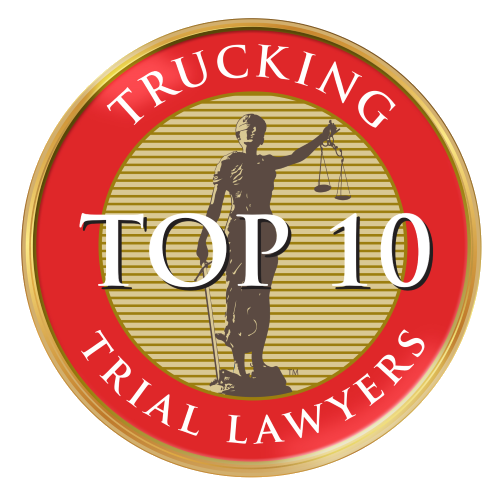When a car comes in contact with an 18-wheeler or other commercial vehicle, there can be catastrophic injuries. Accordingly, the Federal Motor Carriers Safety Regulations (hereinafter referred to as FMCSR) require a minimum of $750,000.00 in insurance to be carried by the owner or operator of the commercial vehicle and usually these companies carry much more insurance as well as excess umbrella coverage.
Things to Do Immediately Upon Receiving the Case
Immediately upon being retained to represent a seriously injured person, several steps should be considered. First, a spoliation letter to discourage the motor carrier or owner/operator from destroying any pertinent records. Next, it is important to send an accident reconstruction expert to the scene to document physical evidence such as skid marks, gouges in the pavement or ruts in the shoulder, which can be important in estimating speed braking and direction of the commercial vehicle. Finally, an accident reconstructionist should exam the police report and any accident report produced internally by the trucking company, as well as inspect both the commercial vehicle and any other vehicles involved in the wreck to reconstruct exactly what happened in the collision.
Black Box and Video Cam
Most trucking companies now have a Black Box to continuously record speed, turns and turn signals, braking, etc. This will be very important in establishing the speed of the commercial vehicle at the time of the wreck. Also, video camera footage is frequently used in commercial trucking these days and this can be extremely helpful in recording what happened in the wreck.
FMCSR Regulations Regarding Weight And Loading
The FMCSR applies to any commercial vehicle with a gross weight of 10,000 pounds or more. This is a combined weight of truck, trailer and tools. Of course, we normally think of 18 wheelers being covered by federal regulations, but often a smaller vehicle with a total gross weight exceeding 10,000 pounds can also be covered by federal regulations and also state regulations.
Qualification of Commercial Drivers
All drivers operating commercial vehicles with a gross weight of 10,000 pounds or more must have a commercial drivers license, be able to understand and write English and pass both state driving test and company driving requirements.
Hours of Service
The FMCSR and the various state acts require each driver to keep up with his or her hours of service so that he or she does not drive when overly fatigued. There is always a strain with drivers wanting to drive more hours than the maximum allowed, because they are paid by the mile rather than by the hour. Sometimes drivers will keep two logbooks, one for alleged compliance with the FMCSR regarding hours of service and another for the actual miles driven which may demonstrate they have driven significantly more than they report in their hours of service records. It is important to discover this information when taking the driver’s deposition.
Liability Of the Shipper of Cargo
If it appears that the wreck is caused by a load that comes loose or shifts during transport, there may be liability on the part of the shipper or broker who loaded the trailer. If, for instance, a load falls off the trailer and impacts another vehicle, 3 the shipper’s and/or shipping broker’s deposition should be taken to determine loading procedures.
Speed and Distance Ahead Regulations
The FMCSR provides minimum safety guidelines for various operating conditions of the commercial vehicle. For instance, at night the commercial vehicle must not travel at a speed greater than that which would allow it to stop within the visual distance of its headlights. This usually means the commercial vehicle should reduce its speed at night. If the commercial vehicle is driving in the rain, the FMCSR provides that the commercial vehicle must reduce its speed by at least one-third during raining and slippery conditions. If conditions are foggy, the CDL manual requires that the commercial vehicle stop until the fog clears. No speed is safe in significant fog. Th4e same is true for road icing conditions
Conclusion
While the economic rewards of litigation against commercial vehicles may be large, the complexity of handling these cases properly, as well as the expense of hiring the necessary experts and doing the necessary discovery, can be substantial. It is critical to hire an attorney who is well versed and experienced in trucking litigation to achieve the best results for each significantly injured client.



